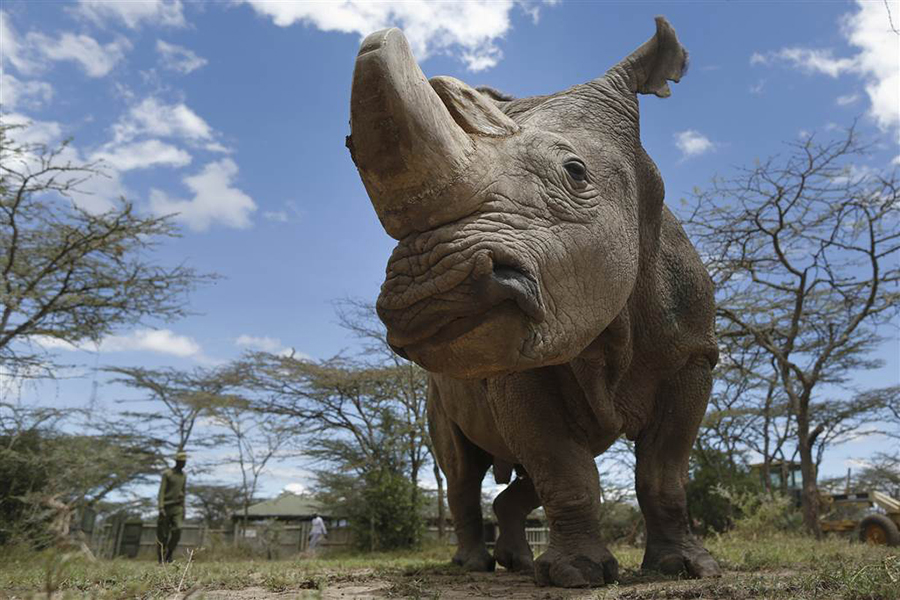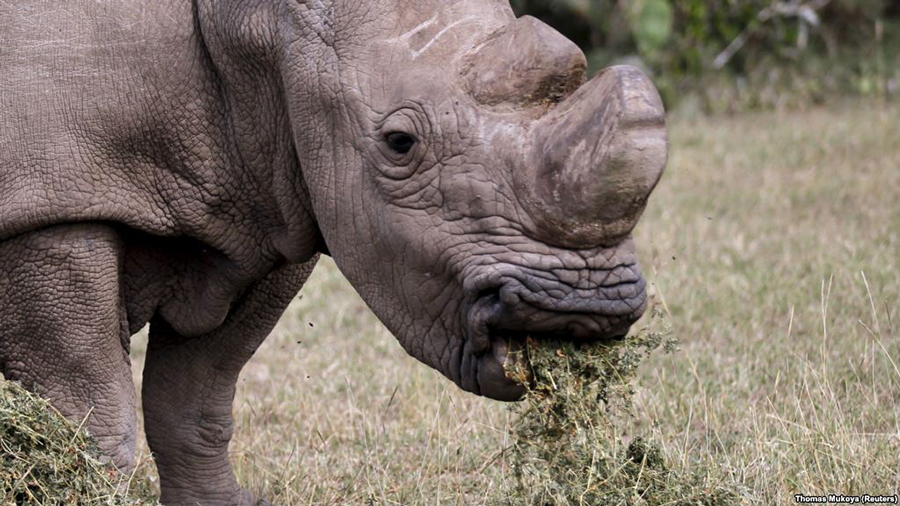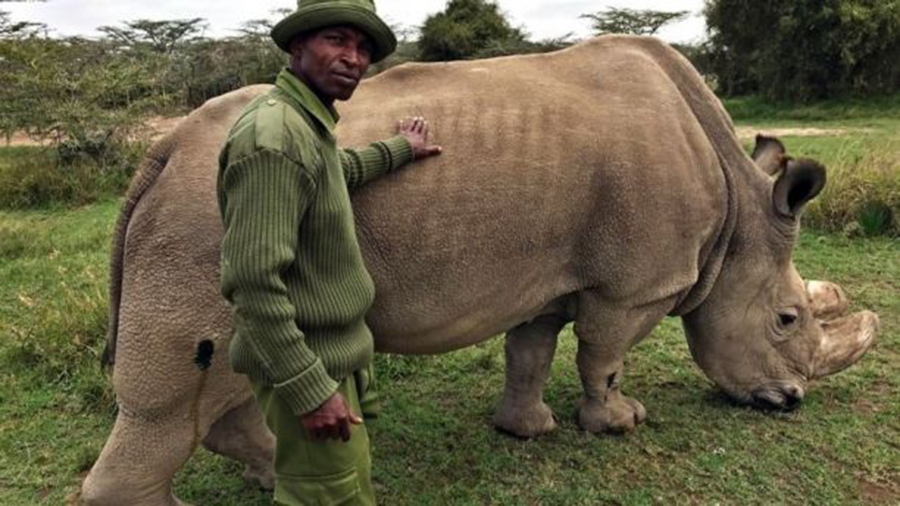Sudan, the world’s last male northern white rhino, died at its 45 years old at Ol Pajeta Conservancy, in Laikipia County, Kenya. The rhino had been presenting complications originated by poor health conditions due to his age. Ol Pajeta Conservancy decided on March 20 to euthanize the rhino since its condition was considerably deteriorated.
However, despite the unfortunate death, the efforts to save the species are not over. The sperm of Sudan was stored – alongside other four rhino’s sperm as well – to perform an in vitro fertilization technique. Thanks to this, the experts will keep the remaining two female, white rhinos alive and with a family waiting to be formed.
The world has been nothing but disappointed considering that extinction is advancing rapidly.
“Utter tragedy today. We can’t just sit back and watch more species disappear,” tweeted Boris Johnson, the British Foreign Secretary .
Northern White Rhinoceros
This subspecies of the white rhinoceros was considered, according to the International Union for Conservation of Nature (IUCN) in 2011, as ‘Critically Endangered – meaning possibly extinct in the wild. Only other two northern white rhinos are left alive: the first one known as Najin, a female born in captivity in 1989; and Fatu, a female born in captivity as well in 2000.
Najin is the mother of Fatu and was the daughter of Sudan. They both belonged to the Dvůr Králové Zoo in the Czech Republic. Nevertheless, they lived in Ol Pejeta Conservancy in Kenya, Africa. They both returned in 2009 alongside with two other male rhinos named Suni and Sudan.

The rhinos were under the look of specialists and lived in bomas, livestock enclosures, that were specially constructed for them. These had a paddock area that allowed the rhinos to acclimatize to their new habitat.
The rhinos were sedated, and their horns were sawn off since the team believed it was better to keep them from injuring one to each other. They also claimed it was an opportunity to regrow their horns into a natural shape, considering that the horns had grown bent because of the bars they rubbed against when being in captivity.
Since “poachers” – the ones who illegally hunted and captured animals to capitalize them – were the main reason for the extinction of the northern white rhinos, these four had radio transmitters installed on them to keep them tracked. Additionally, armed guards surrounded their land, since poachers sold rhino’s horns for even $50,000 per kilo.
They flirted, and then Suni died
Suni and Najin mated on April 25, 2012, and on May 27, 2012. The specialists took great care of the pregnancies, monitoring them closely every week. However, according to the director of the Czech Zoo, Najin had a miscarriage that eventually damaged her uterus – thus, preventing another pregnancy from occurring.

Suni, born in 1980 in captivity like the females, was the first one of the group to die back in 2014. Sudan was the only one who was born in the wild and kept in captivity from 1975 to 2018.
However, in 2015, researchers from the Leibniz Institute for Zoo and Wildlife Research, San Diego Global, Dvůr Králové Zoo and the Tiergarten Schonbrunn, created a plan to ensure the reproduction of the subspecies, using their natural gametes and inducing pluripotent stem cells.
The DNA of a dozen of these northern white rhinos is preserved in genetic banks in Berlin and San Diego.
Just a matter of time
The director of international projects at Dvur Kralove Zoo, Jan Stejskal, claimed:
“It is now just a matter of months before eggs are extracted from the two females. Scientists have developed a technique to extract the eggs, using females from the similar southern white rhino subspecies from European zoos. The genetic material will be transferred to a lab in Italy that is the only place where embryos of northern white rhinos can be created.”

However, the director added that creating embryos had not been tried on northern white rhinos, but in southern ones. It can’t be guaranteed to be a successful procedure.
They would have to travel back to Africa to pick up another pack of eggs in the following months. Nevertheless, if the procedure turns out to be successful, southern rhinos will be used as surrogate mothers in Kenya and European zoos.
Mr. Stejskal explained about Sudan, and its death:
“His genetic material was collected yesterday and provides a hope for future attempts at reproduction of northern white rhinos through advanced cellular technologies. His death is a cruel symbol of human disregard for nature and it saddened everyone who knew him. But we should not give up, it may sound unbelievable, but thanks to the newly developed techniques even Sudan could still have another offspring.”
Source: CBS News
